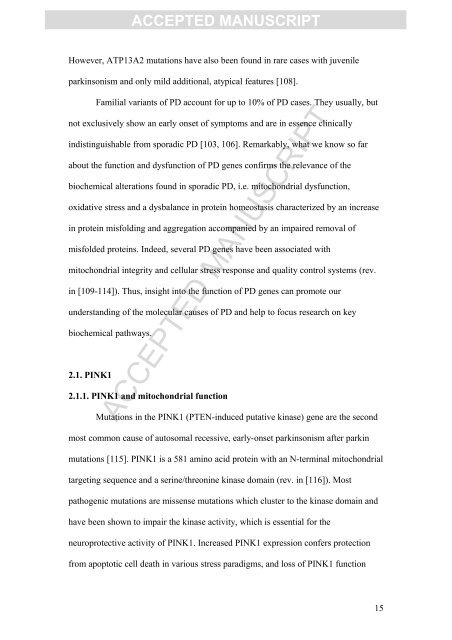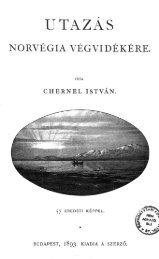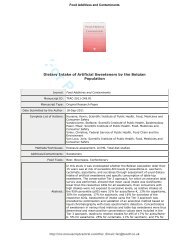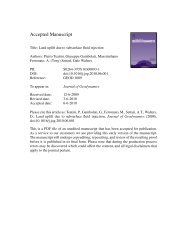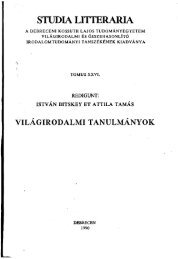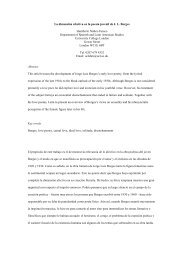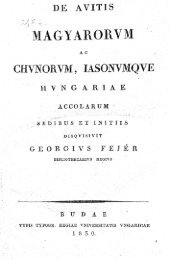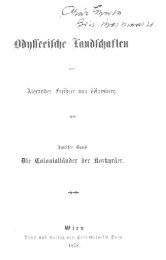accepted manuscript
accepted manuscript
accepted manuscript
You also want an ePaper? Increase the reach of your titles
YUMPU automatically turns print PDFs into web optimized ePapers that Google loves.
ACCEPTED MANUSCRIPT<br />
However, ATP13A2 mutations have also been found in rare cases with juvenile<br />
parkinsonism and only mild additional, atypical features [108].<br />
Familial variants of PD account for up to 10% of PD cases. They usually, but<br />
not exclusively show an early onset of symptoms and are in essence clinically<br />
indistinguishable from sporadic PD [103, 106]. Remarkably, what we know so far<br />
about the function and dysfunction of PD genes confirms the relevance of the<br />
biochemical alterations found in sporadic PD, i.e. mitochondrial dysfunction,<br />
oxidative stress and a dysbalance in protein homeostasis characterized by an increase<br />
in protein misfolding and aggregation accompanied by an impaired removal of<br />
misfolded proteins. Indeed, several PD genes have been associated with<br />
mitochondrial integrity and cellular stress response and quality control systems (rev.<br />
in [109-114]). Thus, insight into the function of PD genes can promote our<br />
understanding of the molecular causes of PD and help to focus research on key<br />
biochemical pathways.<br />
2.1. PINK1<br />
2.1.1. PINK1 and mitochondrial function<br />
ACCEPTED MANUSCRIPT<br />
Mutations in the PINK1 (PTEN-induced putative kinase) gene are the second<br />
most common cause of autosomal recessive, early-onset parkinsonism after parkin<br />
mutations [115]. PINK1 is a 581 amino acid protein with an N-terminal mitochondrial<br />
targeting sequence and a serine/threonine kinase domain (rev. in [116]). Most<br />
pathogenic mutations are missense mutations which cluster to the kinase domain and<br />
have been shown to impair the kinase activity, which is essential for the<br />
neuroprotective activity of PINK1. Increased PINK1 expression confers protection<br />
from apoptotic cell death in various stress paradigms, and loss of PINK1 function<br />
15


